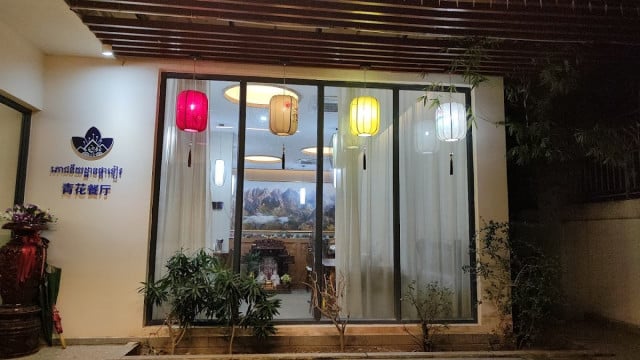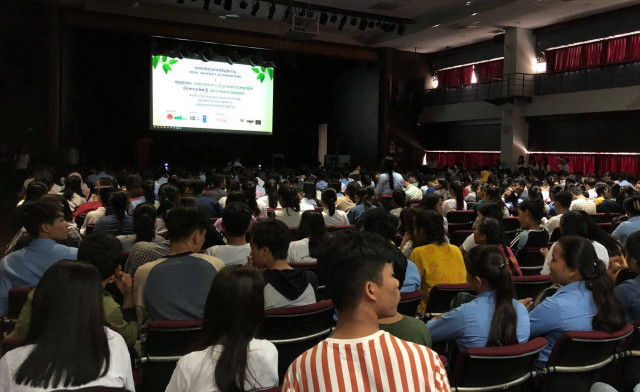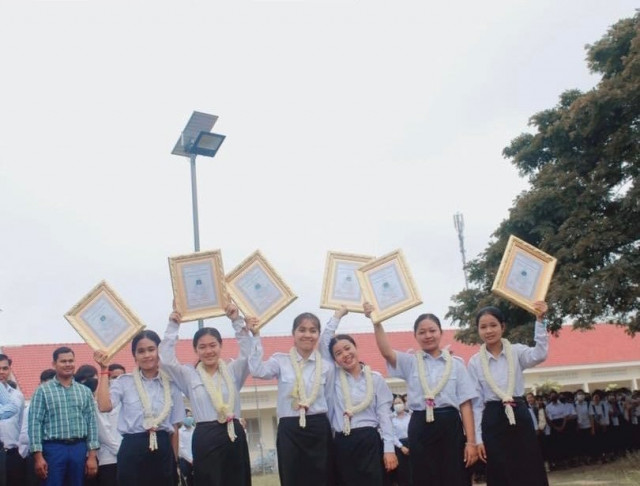How North Korea Sponsors its Nuclear Program

- By Han Noy
- June 4, 2023 3:00 PM
Although the world remains at peace, as there is no military conflict between major power that could threaten global peace, North Korea’s ongoing development and testing of nuclear weapons has continued to be a major threat to the international community.
For these reasons, the United Nations has imposed various sanctions on the North Korean regime to give up and stop testing nuclear weapons. In 2002, the United Nations Security Council (UNSC) imposed sanctions on North Korea, prohibiting other countries from having trade relations with North Korea, including arms, technology, luxury goods and other commodities. Twelve years later, UNSC hit other sanctions on North Korea, prohibiting the country from exporting its critical commodity such as coal, minerals, and helicopters to other countries. The sanctions were also imposed on 39 North Korean individuals and 42 entities, which were banned from travelling abroad and had their assets frozen in foreign countries. It was reported that before sanctions in 2016, coal was essential to generate income for the North Korean government to produce nuclear weapons. North Korea could export around 7,500,000 metric tons, worth US$400,87 million annually.
In 2017, the UN reinforced sanctions on North Korea by prohibiting other nations from providing visas to North Korean workers and hosting North Korea’s business. It should be noted that prior to 2017, North Korean businesses, including restaurants, had operated in foreign countries, including China, Russia, Kuwait, Qatar, and other countries in Southeast Asia.
Following the sanctions, many countries, including China, Kuwait, Qatar, Cambodia and other Southeast Asian countries, closed the restaurant linked with North Korea and sent their staff back to North Korea. For example, in 2019, the Cambodian government demonstrated its commitment to close North Korean business in Cambodia, including North Korea's multi-million-dollar Angkor Panorama Museum in Siem Reap and several restaurants in Cambodia. In addition, Cambodia also repatriated 115 staff and workers back to North Korea. This highlights Cambodian’s commitment to following international norms and rule despite Cambodian's former king Norodom Sihanouk and North Korea’s former President Kim Il Sung being a good friend. Furthermore, the Cambodian government has repeatedly expressed commitment to support the UNSC's resolution on North Korea. For example, in 2022, the Cambodia Ministry of Foreign Affairs released a statement stating that "As a responsible member of the United Nations, Cambodia has completely fulfilled its international obligations under the Charter of the United Nations and has faithfully implemented the resolutions on the UNSC on sanctions on the DPRP."
While most of these sanctions aimed to compel North Korea to abandonee its nuclear program, the regime remains capable of producing and developing nuclear weapons. This can be seen through the constant nuclear tests. In 2022, North Korea tested around ninety short-range and intermediate-range ballistic missiles. The number was relatively higher compared to the past years. North Korea also launched the intercontinental ballistic missile eight times in 2022. This reflected the gravity of the situation as it violated North Korea’s self-imposed moratorium since 2017.
The country’s ability to test nuclear weapons indicated that North Korea could still earn foreign currency to maintain the nuclear program. In addition, it was reported that North Korea had been known to engage in illicit activities such as arms sales, counterfeiting, and drug trafficking to generate foreign currency.
It should be noted that North Korean businesses and restaurants remain prevalent and exist in foreign countries, including China, Laos, Vietnam, and Cambodia. In 2021, it was reported by Radio Free Asia that there were around 20 North Korean restaurants in the Chinese city of Dandong, adjacent to the North Korean border. In 2020, Southeast Asia Globe reported that North Korean restaurants remain active in the town of Vang Vieng, near the capital city of Vientiane. The Southeast Asia Globe also reported that North Korean IT workers remain prevalent in Vietnam.
Similarly, in 2021 a website called "Khmer Nights" published an article claiming a North Korean restaurant called "the Blue Flower Restaurant", which remains operational near Kim Il Sung Boulevard in Cambodia's capital city of Phnom Penh. While the restaurant in Phnom Penh was officially claimed to be owned by the Chinese, it is sceptical as there are two North Korean waitresses and one chef working who can speak little Chinese, Khmer, and English while also wearing a North Korean-style uniform. Additionally, Daedonggang Beer, a North Korean state-owned company beer brand, is being used to serve the guests. On the wall, there is also a display of Mount Kumgang, North Korea's most famous mountain. This environment provides a feeling of being in a restaurant in Pyongyang.
Despite North Korean workers and restaurants working in foreign countries, the primary beneficiary is the Kim Jong Un regime. For example, a North Korean restaurant in Laos is operated by the Haedanghwa Group, a state-owned business.
In conclusion, although the UNSC has imposed various sanctions on North Korea, it still can finance its nuclear program. One main reason is that North Korean business has adopted a sophistication that is hard to identify. Thereby, they can evade the UN’s sanction. This indicates that foreign currency is critical for North Korea's nuclear program. As a result, North Korea has been trying to run business operations in foreign countries, and in some instances, the business is run by the diplomatic corps.
Han Noy is a freelance journalist based in Phnom Penh, Cambodia















